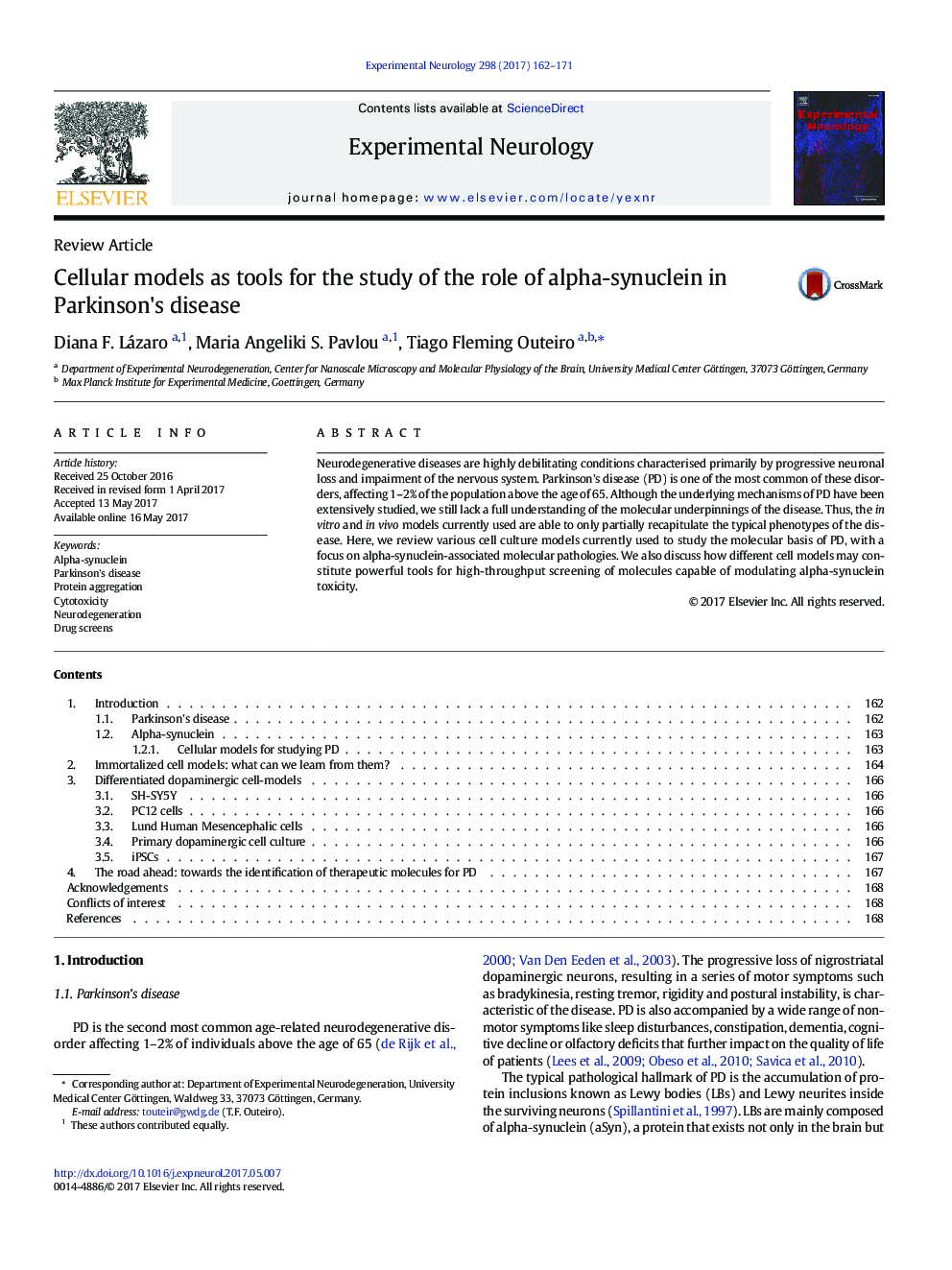| Article ID | Journal | Published Year | Pages | File Type |
|---|---|---|---|---|
| 8684795 | Experimental Neurology | 2017 | 10 Pages |
Abstract
Neurodegenerative diseases are highly debilitating conditions characterised primarily by progressive neuronal loss and impairment of the nervous system. Parkinson's disease (PD) is one of the most common of these disorders, affecting 1-2% of the population above the age of 65. Although the underlying mechanisms of PD have been extensively studied, we still lack a full understanding of the molecular underpinnings of the disease. Thus, the in vitro and in vivo models currently used are able to only partially recapitulate the typical phenotypes of the disease. Here, we review various cell culture models currently used to study the molecular basis of PD, with a focus on alpha-synuclein-associated molecular pathologies. We also discuss how different cell models may constitute powerful tools for high-throughput screening of molecules capable of modulating alpha-synuclein toxicity.
Keywords
Related Topics
Life Sciences
Neuroscience
Neurology
Authors
Diana F. Lázaro, Maria Angeliki S. Pavlou, Tiago Fleming Outeiro,
